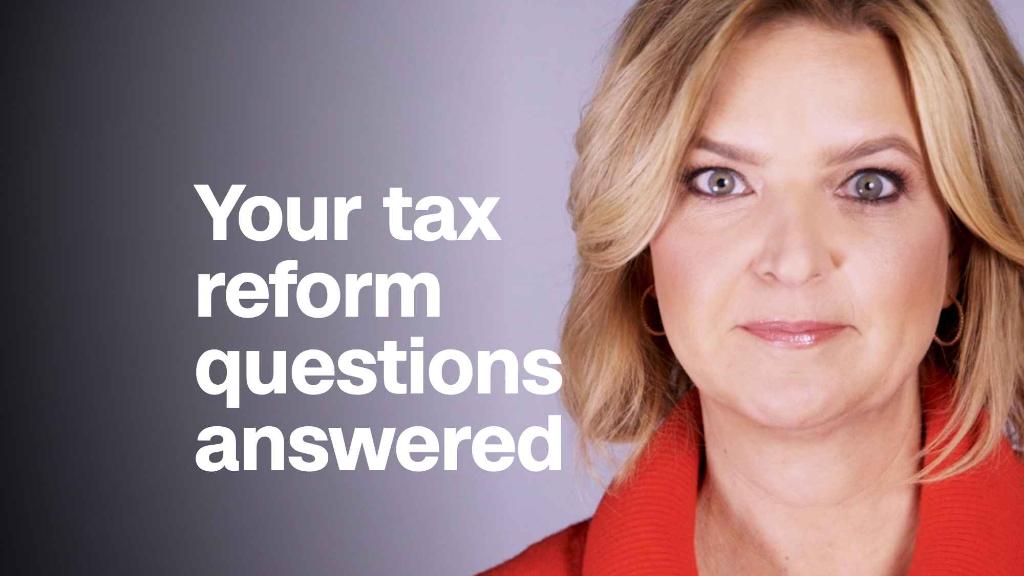
The idea of striking out on your own after being a salaried working stiff for years can be enticing.
And it's all the more so now that the tax overhaul created a 20% deduction for those running their own business.
But there's a lot to consider when figuring out whether you really would do better financially by being self-employed.
Ask yourself these questions before quitting your day job.
Would you qualify for the new deduction?
That question isn't as simple as it sounds. There's a complicated formula to determine who qualifies and who doesn't, and even tax experts aren't sure how to interpret the law.
Here are the basic rules: If your taxable income will fall below $157,500 as a single freelancer or $315,000 as a married one, you'll be eligible for the deduction.
Keep in mind taxable income is more than just your business income. It includes all income sources, such as your investment income and your spouse's earnings.
Related: Who can take the new business tax deduction? Even tax experts aren't sure
If you make more than that, you may still be eligible, but only if you meet certain criteria.
For example, service businesses in several fields -— such as health, law, accounting, finance and the performing arts — may not take the deduction.
Neither can businesses that rely on their founders' reputation or skill as a "principal asset." But no one knows yet what lawmakers were targeting with this exclusion. And the IRS won't be issuing guidance for many months.
Another eligibility test is based on the wages your business pays to you and others. There are complicated wage formulas you'll have to apply to figure out a) if you can take the deduction and b) if so, how much of you income is really deductible.
What will your real tax burden be?
If you do qualify for the new 20% deduction, you may pay less in income taxes than you do now. But you'll still pay more in payroll taxes than you would as an employee.
That's because employers normally pay half of the 15.3% Social Security and Medicare tax owed on your gross income.
Independent workers must pay the full 15.3%. You may deduct half of that on your tax return. But you'll still end up paying more in payroll taxes.
Every case will differ in terms of how you'd fare overall. But just as one example: A single freelancer making $70,000 could pay $1,100 more in total federal tax (income + payroll) this year than someone making $70,000 as an employee, according to The Tax Institute at H&R Block.
Still, the 20% deduction can go a long way to closing the gap between the overall tax burden of an employee vs. a freelancer.
"It will help people become more entrepreneurial," said Jonathan Medows, a CPA who specializes in working with the self-employed.
How valuable are your tax-free benefits at work?
Compare how much your current job is really worth with how much you'd need to make as a freelancer just to break even.
As an employee, valuable tax-free benefits are part of your total compensation — e.g., subsidies to buy health and other types of insurance, a 401(k) match, sick days and vacation days, among others.
The Bureau of Labor Statistics estimates 32% of your total compensation is due to these non-wage benefits. So if you're grossing $68,000, your employer is really spending about $100,000 on you.
"To be on equal footing, a freelancer may need to earn 20% to 30% more than an employee," said Nathan Rigney, lead tax research analyst at The Tax Institute.
How much is being your own boss worth to you?
For most traditional freelancers and sole proprietors, you'll probably make less than you did as an employee when you start out, especially once you count your new overhead expenses and other business-related costs.
"You'll go backward. And you'll need savings to get you through," Medows said.
Of course, you may assume you can make the same or more thanks to the new deduction if your current employer simply converts you to an independent contractor.
But there are tests governing whether your employer is allowed to reclassify you as contract worker.
"It's a good idea to talk to an attorney with expertise in employment law who can advise you on whether you can legally qualify as an independent contractor," Rigney said.
